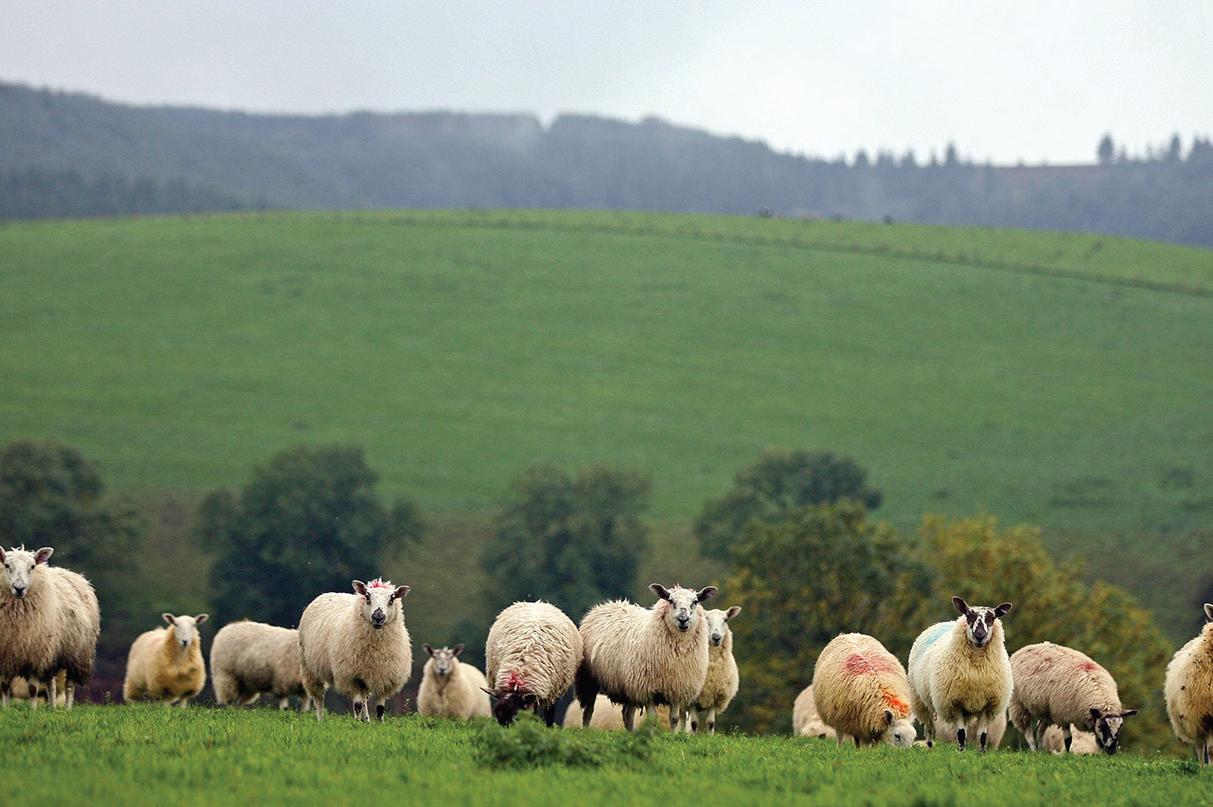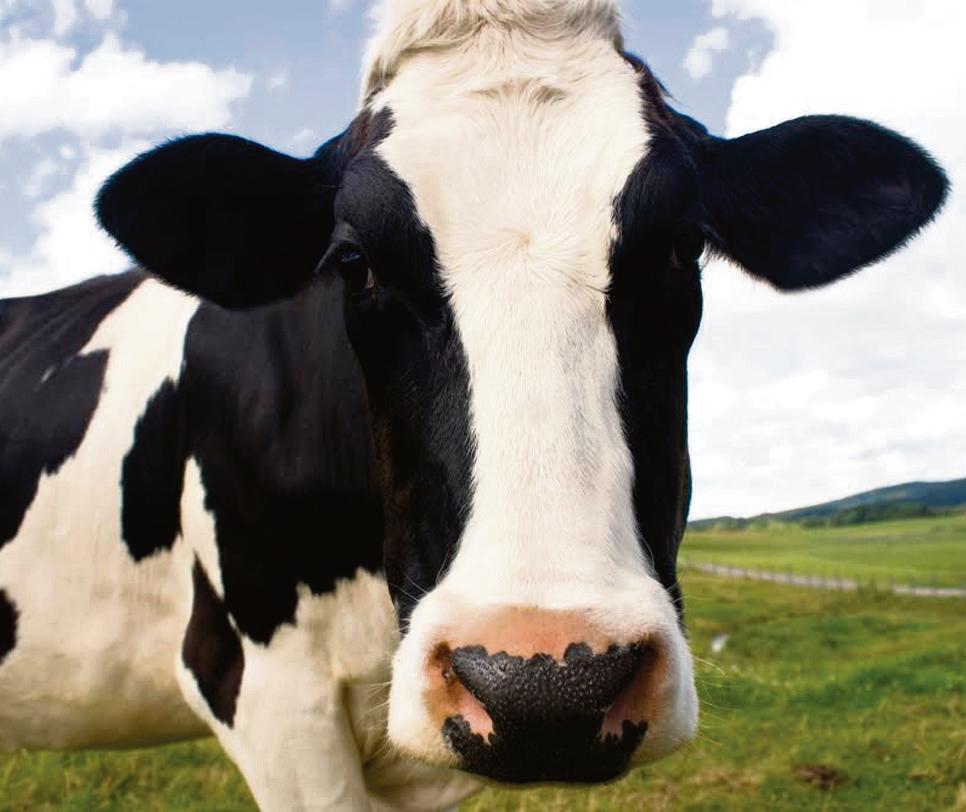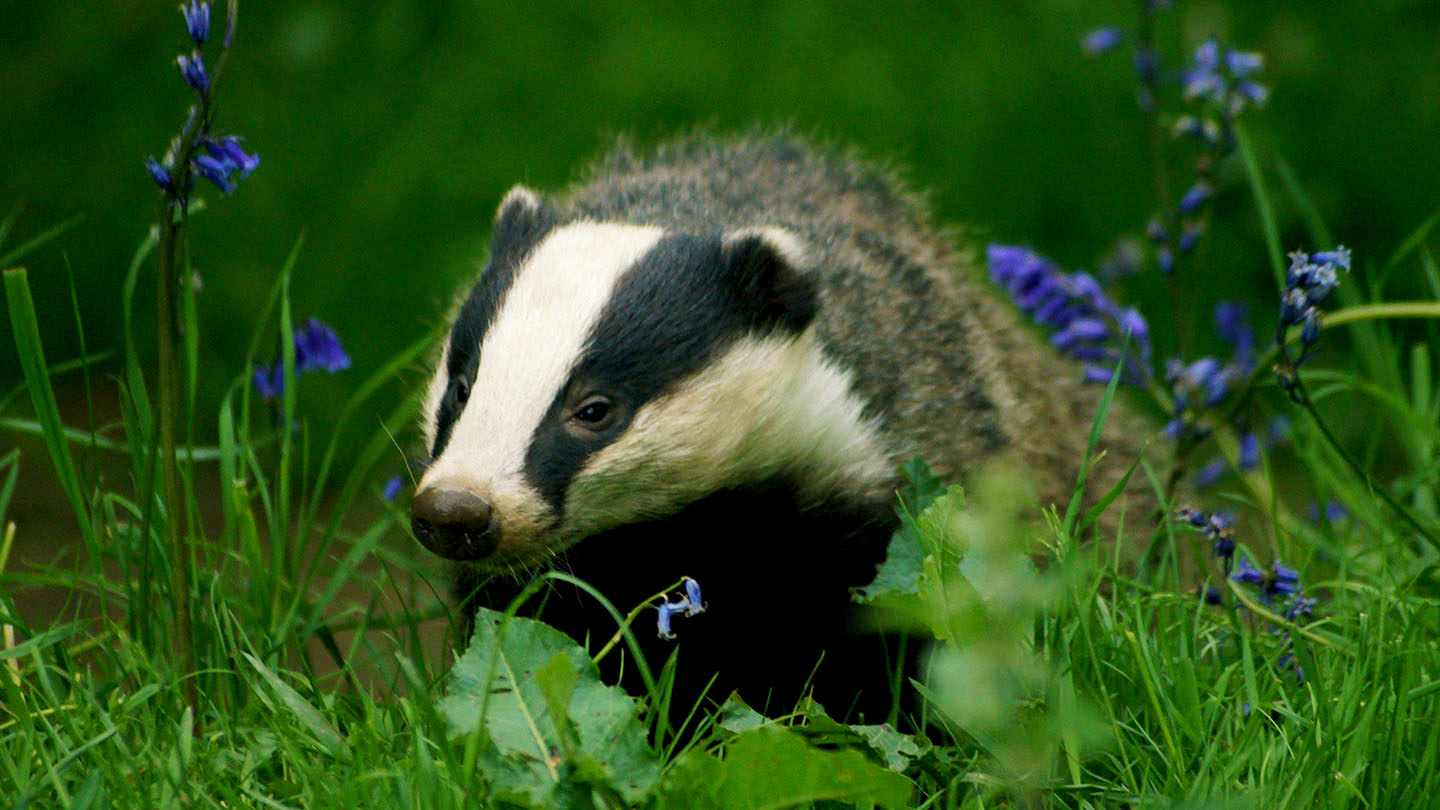Farming
Cultivating votes: Farming and the election


Farmers can have an influence on election: A close eye on political developments.
THE ELECTION on May 7 is widely touted as being one of the closest of recent times. Away from the photo opportunities and soundbites, farmers around the UK are keeping a close eye on political developments.
Both the FUW and the NFU have made no bones that they are looking towards central government to support farming and the wider agricultural industry. With votes precious, the question is how far political parties are prepared to bend their policies to meet farmers’ expectations. While votes in the shires of England tend to aggregate towards the Conservatives, the picture in Wales is rather more complex.
For a start, there are more small independent farms per head of population than there are in England and income from agriculture and food production make up a larger part of Wales’ own domestic product.
When one focuses on the commitments of the larger parties in Wales, there is little meat in any of the manifestos, which focus on large picture macro-economic concerns rather than practical proposals to improve the lot of farmers and agricultural workers and farming communities in the short to medium term.
The Conservative manifesto has promised a lot for the longer term:
- 25 year growth plan for food industry
- Commitment to 25 year TB strategy (including culling)
- 5 year tax averaging
- Single farm inspection taskforce to co-ordinate visits, including Red Tractor
- Treble food, farming and Agri-tech apprenticeships
- Great British Food Unit to promote British exports
- Push for Country of Origin Labelling for dairy in Europe
The long term is all very well, but at a time when farming incomes for family farms are being squeezed tighter than ever, most farmers will be most interested in the here and now. Farmers need certainty about their income and about the support they can expect from government now and tomorrow and not in the sweet bye and bye.
The Conservatives have promised to deliver in 2017 a referendum on whether Britain should stay in or stay out of the European Union. What they have not said is what they will do to help farmers replace European funding payments, upon which many farmers rely, if, in 2017, the British people choose to leave the EU. In addition, the Conservatives have not said how British farmers will be able to continue to access European markets for their produce if tariffs on imports to the EU from the UK follow, as they surely would.
The Labour Party has a significant problem with rural and farming affairs. From being an industry that commanded a seat at the centre of Cabinet discussions, farming was side-lined during the last Labour Government and there is no dedicated minister for agriculture and rural affairs in the Cabinet on the Bay.
Lingering resentment exists in some parts of the Welsh countryside over the ban on hunting with dogs, particularly on upland farms where predation by foxes is a particular problem. There also remains considerable disquiet at the way the Welsh Labour government caved in to those protesting against badger culls. In both cases, it seemed to most farmers that Labour was more interested in appeasing voters who had perhaps a more rosy view of Reynard the Fox and Brock the Badger than most farmers experience in their daily lives.
So, where Labour has a policy at all on agriculture, it is more concerned with issues at the end of the food-delivery process than those issues at source level. Labour’s manifesto commitments on agriculture (in the broader sense) are:
- End the badger cull pilots
- Expand the remit of the Groceries Code Adjudicator
- Ban zero-hours contracts – workers have right to permanent contract after 12 weeks
- Long-term food strategy
- Maximum-permitted levels of sugar, salt and fat in food marketed to children
- Broadband rollout
In times past, the old Liberal Party was the last redoubt of Welsh farmers. Broadly put, large landowners backed the Tories, farmers and rural communities tended to back the Liberals. The splintering of old ties is, however, likely to see the Liberal Democrat vote across large parts of Wales shrink significantly: while Mark Williams seems likely to hold Ceredigion, Brecon and Radnor is on a knife’s edge. With the Liberal Democrats looking to be coalition partners with any new government, its ability deliver manifesto commitments is necessarily limited, but it is likely that promises to review policies rather than put forward specific measures of their own would make them relatively easy to slot back in to either of the main party’s farming commitments.
Plaid Cymru’s pitch is, perhaps, predictably to wish a plague on both the houses of the Conservative and Labour parties, with Carmarthen East & Dinefwr candidate Jonathan Edwards claiming that: “Plaid Cymru is the champion of rural Wales. We are the only party that has a strong record of standing up for farmers and rural businesses, and opposing the establishment parties’ threats to the EU funding that the sector depends on.”
Farming
Welsh Conservatives warn climate plans could mean fewer livestock on Welsh farms

THE WELSH CONSERVATIVES have challenged the Welsh Government over climate change policies they say could lead to reductions in livestock numbers across Wales, raising concerns about the future of Welsh farming.
The row follows the Welsh Government’s decision, alongside Plaid Cymru and the Welsh Liberal Democrats, to support the UK Climate Change Committee’s Fourth Carbon Budget, which sets out the pathway towards Net Zero greenhouse gas emissions by 2050.
The Carbon Budget, produced by the independent Climate Change Committee (CCC), states that meeting Net Zero targets will require a reduction in agricultural emissions, including changes to land use and, in some scenarios, a reduction in livestock numbers.
During questioning in the Senedd, the Welsh Conservatives pressed the Deputy First Minister and Cabinet Secretary for Climate Change and Rural Affairs on whether the Welsh Government supports reducing livestock numbers as part of its climate strategy.
Speaking after the exchange, Welsh Conservative Shadow Cabinet Secretary for Rural Affairs, Samuel Kurtz MS, said the Welsh Government could not distance itself from the implications of the policy it had backed.
Mr Kurtz said: “By voting in favour of these climate change regulations, Labour, Plaid Cymru and the Liberal Democrats have signed up to the UK Climate Change Committee’s call to cut livestock numbers in Wales, and they cannot dodge that reality.
“The Deputy First Minister’s smoke-and-mirrors answers only confirm what farmers already fear: that Labour, along with their budget bedfellows in Plaid and the Lib Dems, are prepared to sacrifice Welsh agriculture in pursuit of climate targets.”
He added that the issue came at a time of growing pressure on the farming sector, pointing to uncertainty over the proposed Sustainable Farming Scheme, the ongoing failure to eradicate bovine TB, nitrogen pollution regulations under the Nitrate Vulnerable Zones (NVZs), and proposed changes to inheritance tax rules affecting family farms.
The Welsh Government has repeatedly said it does not have a target to forcibly reduce livestock numbers and has argued that future emissions reductions will come through a combination of improved farming practices, environmental land management, and changes in land use agreed with farmers.
Ministers have also said the Sustainable Farming Scheme, which is due to replace the Basic Payment Scheme, is intended to reward farmers for food production alongside environmental outcomes, rather than remove land from agriculture.
The UK Climate Change Committee, which advises governments across the UK, has stressed that its pathways are based on modelling rather than fixed quotas, and that devolved governments have flexibility in how targets are met.
However, farming unions and rural groups in Wales have warned that policies focused on emissions reduction risk undermining the viability of livestock farming, particularly in upland and marginal areas where alternatives to grazing are limited.
The debate highlights the growing tension between climate targets and food production in Wales, with livestock farming remaining a central part of the rural economy and Welsh cultural identity.
As discussions continue over the final shape of the Sustainable Farming Scheme and Wales’ long-term climate plans, pressure is mounting on the Welsh Government to reassure farmers that climate policy will not come at the expense of the sector’s survival.
Farming
FUW Insurance Services appoints Paul Jameson as non-executive director

Experienced insurance and risk specialist joins board as long-serving director retires
FUW INSURANCE SERVICS LTD, Wales’ leading specialist agricultural insurance broker, has announced the appointment of Dr Paul Jameson as a non-executive director.
Dr Jameson brings extensive experience in insurance and risk management, having worked as an actuary and senior executive within subsidiaries of major global insurers including Allianz, Munich Re, Legal & General and Wakam. He has held chief risk officer roles since 2020.
During his career, Dr Jameson has led multidisciplinary teams spanning actuarial services, risk management, compliance, audit, legal and marketing approvals, giving him broad experience in both strategic oversight and operational governance.
Speaking following his appointment, Dr Jameson, who lives in Colwyn Bay, North Wales, said he was looking forward to supporting the farming sector in Wales.
He said: “I am delighted to join FUW Insurance Services and would like to thank Ann, Guto and the rest of the team for their warm welcome.
“I have been impressed by the passion and commitment of the board to the farming community, and by its ambition to grow and diversify the insurance business. I am keen to support the farming profession and help ensure the continued success of the sector in Wales, particularly during periods of economic and geopolitical uncertainty.
“I hope my experience in the insurance sector will help the business build on its successes and continue to grow, especially as it explores new commercial opportunities and innovative avenues for expansion.”
Ann Beynon OBE, chair of the FUW Insurance Services board, said Dr Jameson’s expertise would be a significant asset to the organisation.
She said: “We are delighted to welcome Dr Paul Jameson to the board. His depth of experience in insurance and his understanding of risk management will be invaluable as we continue to develop and diversify our services.
“Paul’s insight and strategic perspective will help us navigate a changing insurance market, identify new opportunities for innovation and growth, and strengthen the services we provide to our customers.”
Dr Jameson’s appointment follows the retirement of Ken Isherwood, who has stepped down from the board after more than a decade of service.
Paying tribute, Ann Beynon said: “Ken’s integrity, wisdom and deep knowledge of the insurance industry have underpinned much of our success.
“It has been a privilege to work alongside him, and we wish him every happiness in his well-earned retirement.”
Community
Badger Trust launches manifesto ahead of 2026 Senedd elections

THE BADGER TRUST has published a new Cymru Badger Manifesto calling on candidates standing in the 2026 Senedd elections to commit to a science-led approach to bovine tuberculosis (bTB) and to maintain Wales’ current policy of not culling badgers.
The manifesto, released on Wednesday (Dec 10) as part of the charity’s Badgers Belong Here / Mae Moch Daear yn Perthyn Yma campaign, sets out the organisation’s position on badger protection, wildlife crime and bTB control, and urges politicians to reject calls for the reintroduction of culling in Wales.
Badger Trust argues that political decisions taken during the next Senedd term will be critical to the future of badgers, which it describes as culturally and ecologically significant to Wales. The charity says badgers have been present in Wales for more than 250,000 years and remain part of Welsh folklore, place names and rural identity.
Five key commitments
The manifesto outlines five commitments the charity is asking Senedd candidates to support, including defending what it describes as science-led policy on bTB, challenging misinformation in public debate, strengthening enforcement against wildlife crime, recognising badgers as part of Welsh heritage, and supporting local volunteer badger groups.
According to Badger Trust, 140 incidents of badger-related wildlife crime have been recorded in Wales since 2020, which it says highlights the need for improved reporting and enforcement.
The charity also points to the work of six active badger groups across Wales, which it says assist with rescuing injured animals, monitoring setts, recording road casualties and supporting local authorities.
bTB policy in Wales and England
Wales has not carried out widespread badger culling as part of its bTB control strategy, instead focusing on cattle testing, biosecurity measures and herd management.
Badger Trust claims that new herd incidents of bTB in Wales fell by more than 40% between 2010 and 2024, which it attributes to cattle-based controls rather than wildlife intervention.
The charity contrasts this with England, where it says almost 250,000 badgers have been culled over the past decade as part of bTB control programmes. It argues that bTB rates in England remain higher than in Wales and that the evidence does not show culling alone to be responsible for reductions in disease.
Disputed claims over culling
The manifesto challenges the frequently cited claim that badger culling in England led to a 56% reduction in bTB in cattle. Badger Trust says this figure has been misinterpreted and that studies cited in support of culling also involved additional measures such as enhanced cattle testing and biosecurity.
The charity points to statements from researchers and official correspondence which, it says, indicate that reductions in bTB cannot be attributed solely to culling.
Supporters of culling, including some farming groups, continue to argue that wildlife control should remain an option as part of a wider disease management strategy, particularly in areas with persistent infection. The Welsh Government has previously said it keeps its bTB policy under review in line with emerging evidence.
Call to candidates
Nigel Palmer, CEO of Badger Trust, said Wales demonstrated that bTB could be tackled without killing wildlife.
He said: “Wales is a world-leading example of how to address bovine TB through evidence-based policy. The progress made here shows that culling is not necessary, and we urge Senedd candidates to stand by the science.”
The manifesto is available in both Welsh and English and will be circulated to political parties and candidates ahead of the 2026 election.
-

 Crime2 days ago
Crime2 days agoMilford Haven man jailed after drunken attack on partner and police officers
-

 News5 days ago
News5 days agoDyfed-Powys Police launch major investigation after triple fatal crash
-

 Crime1 day ago
Crime1 day agoTeenager charged following rape allegation at Saundersfoot nightclub
-

 Crime2 days ago
Crime2 days agoMan charged with months of coercive control and assaults
-

 Crime3 days ago
Crime3 days agoMan sent to Crown Court over historic indecent assault allegations
-

 Crime5 days ago
Crime5 days agoMan spared jail after baseball bat incident in Milford Haven
-

 Crime3 days ago
Crime3 days agoMilford Haven man admits multiple offences after A477 incident
-

 Crime2 days ago
Crime2 days agoWoman ‘terrified in own home’ after ex breaches court order






















